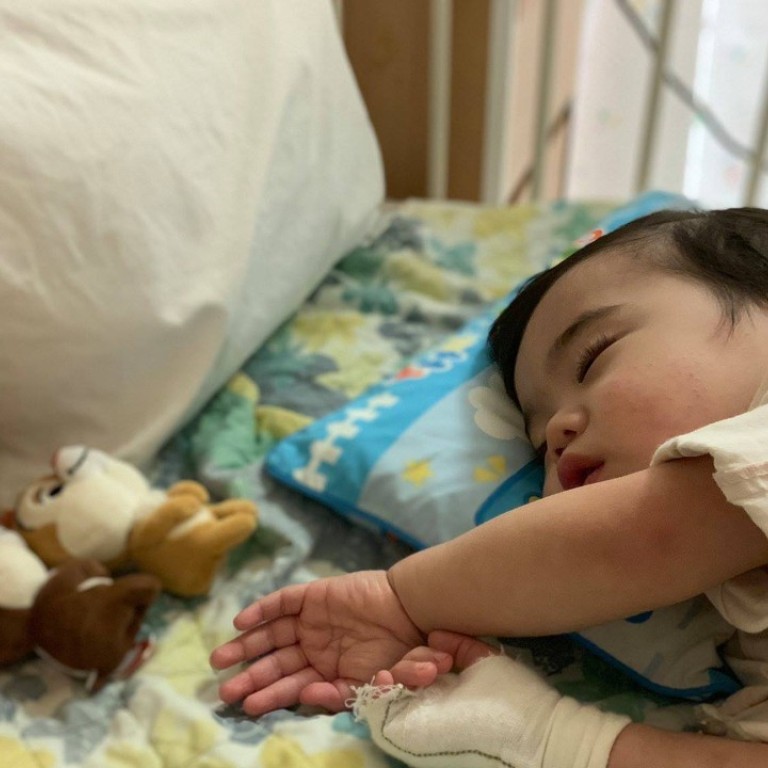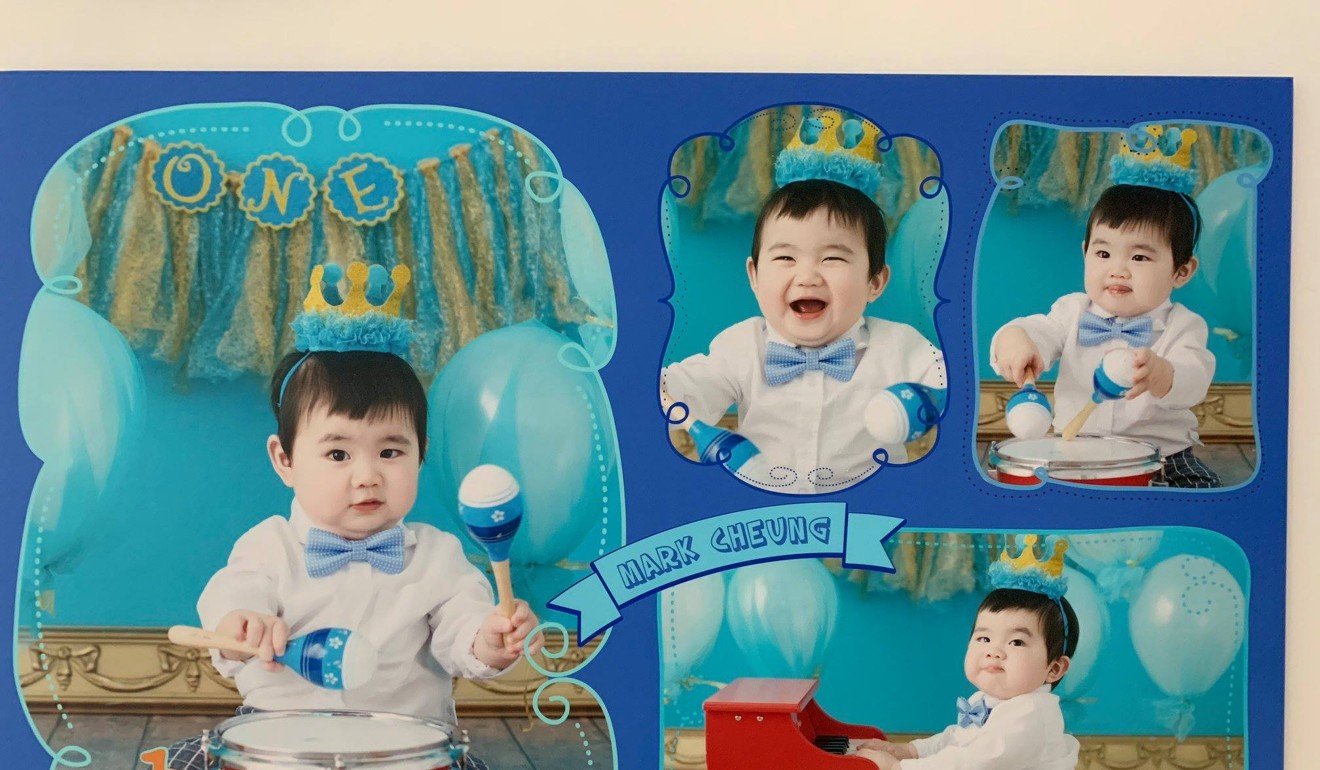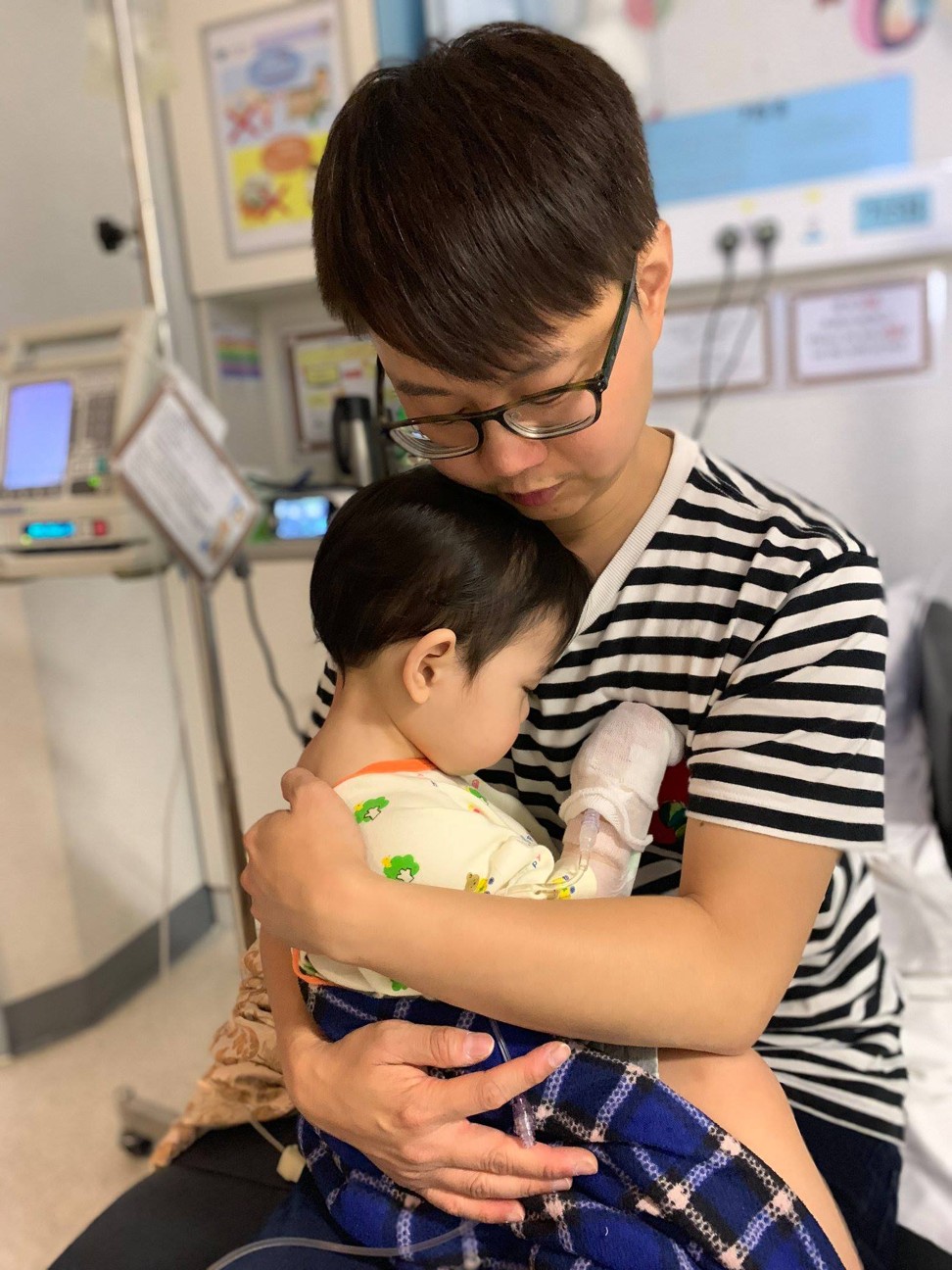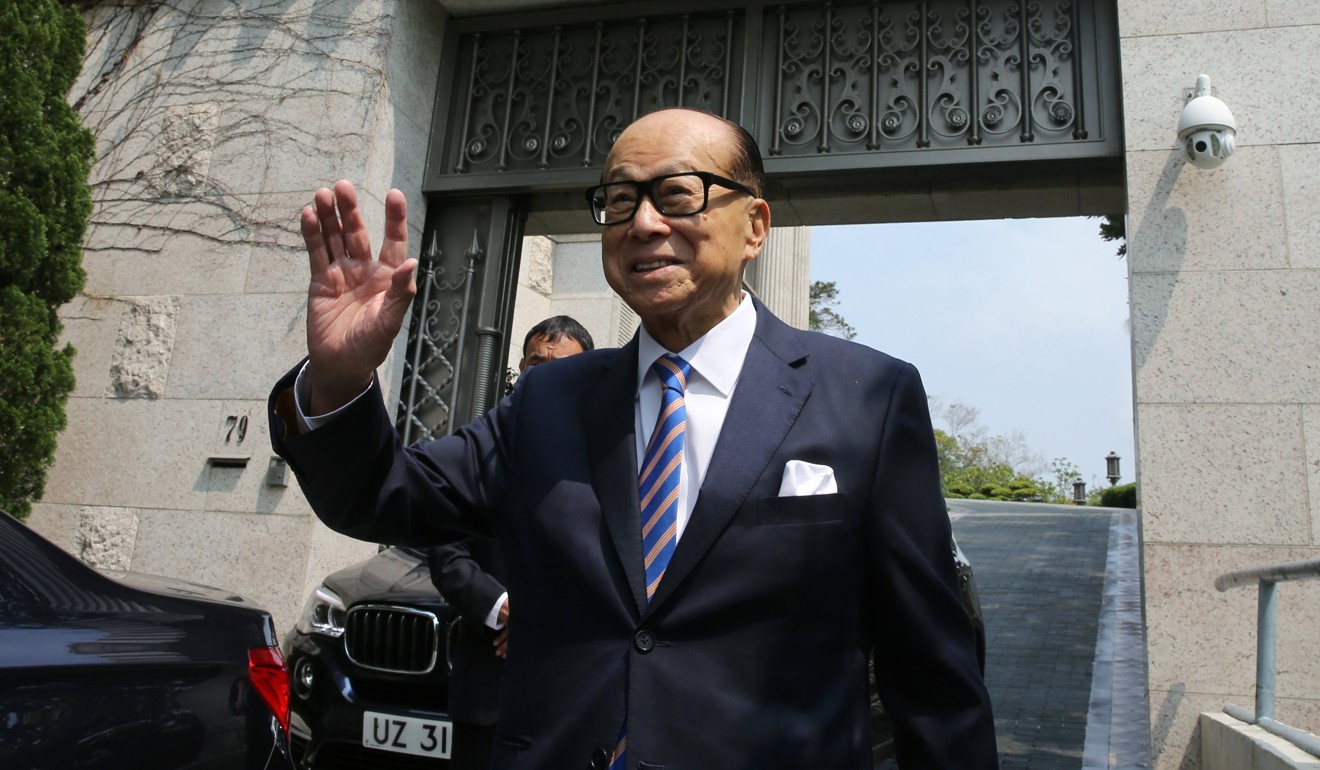
HK$2 million donation by Li Ka Shing Foundation gives hope to infant cancer patient
- Seventeen-month-old Mark Cheung Ho-yan is in need of immunotherapy to increase his chances of survival but it is not covered by government subsidies
- The young boy has been stricken with both aortic narrowing and stage four neuroblastoma
There was a glimmer of hope for a 17-month-old cancer patient on Friday, after a charity fund founded by Hong Kong’s richest man Li Ka-shing donated HK$2 million (US$255,400) to a medical subsidy programme, which the child stands to benefit from, a day after a fundraising appeal was launched.
Li’s move came after Chinese University’s medical school on Thursday evening made the appeal for Mark Cheung Ho-yan, who was recently diagnosed with stage four neuroblastoma, a common cancer in children.
Ho-yan, son of Dr Cheung Chun-kit, a graduate of the school in 2000, was also confirmed to suffer from coarctation – or narrowing – of the aorta when he was four days old. The rare heart disease meant the newborn needed surgery.
To treat his cancer, Ho-yan needs immunotherapy to raise his chance of survival from 20 to 50 per cent. But the cost of the therapy, not covered by government subsidy, would be as high as HK$2 million.

In a press release published by the university on Friday, it was announced that the Li Ka Shing Foundation had injected an extra HK$2 million into a new medical assistance programme named “Love Can Help”, which was set up with support by the Hospital Authority and the medical schools of Chinese University and the University of Hong Kong, with the aim of subsidising patients who fall outside the government subsidy programmes.
The injection would allow the medical assistance programme’s subsidy items related to children’s cancer to be initiated earlier than scheduled, so Ho-yan and other children suffering from similar condition could be benefited as soon as possible.
The press release said Li expressed concern after learning of the Cheung family’s situation, and contacted the university’s pro-vice-chancellor Professor Fok Tai-fai.
“We are deeply grateful for the generosity of Mr Li Ka-shing and the Li Ka Shing Foundation,” Cheung said. “We also thank people from various sectors for their care. This support is very precious for Ho-yan and our family.”

“There is a one in a 100 million chance that someone will suffer from coarctation of the aorta and stage four neuroblastoma at the same time, and it Ho-yan was unlucky enough [to be that person],” Cheung added.
The cost of the treatment was too heavy for the Cheung’s family to bear. Cheung’s other son suffers from autism, and his wife has resigned from her job to take care of the two children.
According to information from the university, cancer cells have spread to the boy’s skull, lumbar spine and pelvis, and suppressed nerves at his spinal cord too.

“He is in intense pain and is at risk of paralysis. Cancer cells are now spreading to his bone marrow,” the institution added.
Professor Li Chi-kong from the university’s department of paediatrics said there are around 10 new cases of neuroblastoma recorded in Hong Kong every year, with 60 to 70 per cent of those cases already in stage four when detected.
Li, whose expertise covers paediatric oncology, said stage four was the most advanced stage, meaning cancer cells have spread to other parts of the body. But the cause of the illness was unknown.
“Causes of most child cancer cases are unknown. It is not hereditary, and not related to the environment,” Li said.

